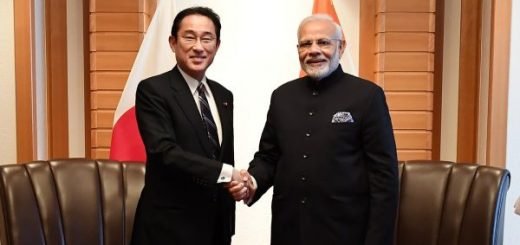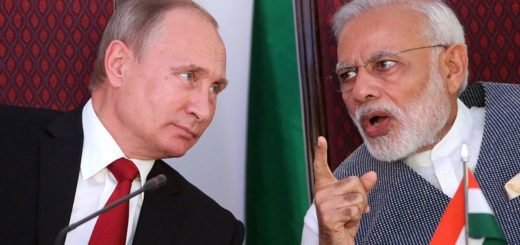UN Secretary General’s insistence for Nuclear-weapons-free-world on Nagasaki Day: An Assessment

United Nations Secretary-General Antonio Guterres’ insistence, on the occasion of the 75th anniversary of the nuclear bombing on Nagasaki, for viewing this tragedy as a rallying cry for humanity and recommit to a world free of a nuclear weapon, resurrected the debate on achievements and obstacles behind nuclear disarmament. It is noteworthy that the very devastating consequences of a nuclear attack on humanity have been stimulating, again and again, to contemplate about the feasibility of nuclear weapons, which has been relentlessly emerging as a more catastrophic weapon with the increasing precariousness of nuclear terrorism as well as aggressive and irresponsible behaviour of rogue de-facto nuclear states. At even cold war situation,
catastrophe linked with nuclear weapons had forces both USA and USSR, despite very deep-rooted antagonism, to finalize several disarmament and arms control treaties which include Strategic Arms Limitation Treaty-1(SALT-1), Anti-Ballistic Missile(ABM) Treaty, Intermediate Nuclear Force (INF) Treaty, and Strategic Arms Reduction Treaty 1 (START-I). It is noteworthy that Arms-control is a mechanism through which the proliferation of arms is constrained by agreements limiting their production, distribution and use; whereas Disarmament is the reduction of fighting capacity, either through scaling down or, more likely categories of weapons.

Furthermore, in second nuclear race era too, USA and Russia have signed certain other arms control agreements such as Strategic Arms Reduction Treaty-2 (START-II), Strategic Offensive Reduction Treaty (SORT) and New START Treaty (2010). In fact, Belarus, Kazakhstan and Ukraine inherited nuclear
stockpiles following the Soviet Union’s collapse in 1991 but joined NPT as the non-nuclear-weapon states by returning all the nuclear weapons to Russia. And, South Africa secretly developed but subsequently dismantled all the nuclear weapons before joining NPT in 1991. Libya has voluntarily renounced its clandestine nuclear weapon programme in 2003. Similarly, Argentina, South Korea, and Brazil have shelved their nuclear weapon programs. Most importantly, recognition of Mongolia’s self-declared nuclear-weapon-free status through the adoption of UN General Assembly resolution 55/33S on “Mongolia’s international security and nuclear-free status” manifested the unprecedented consequences of global disarmament initiatives. Which have been further strengthened with the evolution of the nuclear-weapon-free zones(NWFZs) in Latin America and the Caribbean, South Pacific, South East Asia, Africa, and Central Asia. Moreover, multilateral treaties ensuring denuclearization of the entire Antarctic continent, outer space, moon and other celestial bodies, as well as Sea-beds have come into being.
But simultaneously, acquirement of nuclear weapons by several additional countries including India, Pakistan, Israel and North Korea has obstructed the way of nuclear disarmament initiatives. It is noteworthy that Iran was the original signatory of NPT and North Korea was a member of NPT till 2003. In spite of international sanctions, nuclear weapon programs of North Korea and Iran by violating international norms has raised many questions regarding the disarmament regimes.
Reasons behind embracing nuclearization:
Despite several disarmament treaties, many countries have acquired or striving to acquire nuclear weapons even by violating international treaties without taking into account the global sanctions etc. This explicitly manifests that the comparatively more important interests are stimulating nuclear proliferation in those countries.

Nuclear non-Proliferation Treaty(NPT), the most prominent treaty of nuclear disarmament regime, stipulates the obligation of Nuclear Weapon States (NWS) to destroy their nuclear weapons. But due to lack of time limitations, no NWS is genuinely reducing their nuclear weapons rather than using this treaty to prevent merely nuclear proliferation in new countries. Thus it is rendering NWS as a global hegemons. A nuclear weapon is ultimately conceived as an element of superiority.
Moreover, nuclear weapons of any country, by creating a security dilemma, induces the arms races including Nuclear weapon acquirement programme in its vicinity in order to attain credible minimum deterrence capability. When this dilemma is accompanied by the ambition of the country to be a part of the global hegemony of NWS, the possibility of clandestine nuclear-weapon-programme increases.
In fact, President Donald Trump’s inconsistent policies to withdraw USA from the INF treaty and assertion for advancing nuclear weapons in several occasions, explicitly reflects the lack of seriousness in the perspective of global denuclearization initiatives. Moreover, Iran has inked the Joint Comprehensive Plan of Action (JCPOA) preventing Iranian nuclear weapons acquirement programme, with all permanent members of the security council and Germany on 14th July 2015. But President Donald Trump has unilaterally, by spurning the appeal of other stakeholders including European countries of this treaty, withdrawn USA from the deal on 8th May 2018. Furthermore, the USA has imposed sanctions over Iran without any proper IAEA’s accusation regarding clandestine attempt to acquire a nuclear weapon. So it has been conceived by Iran as a betrayal of America
despite proper execution of JCPOA by Iran in the views of other stakeholders. Similarly, Trump-Kim Jong Un Singapore summit was an important stage in which North Korea had asserted to stop all its nuclear programme instead of removal of American sanctions, but it has been culminated in further enhancement of nuclearization of this East Asian nation due to refusal of America from doing so. Thus, when these countries face some security threats as well as lack of opportunities for development due to international economic sanctions, they venture to acquire nuclear weapons as Iran has determined after killing off its General Soleimani.

Different countries’ priority of their national interests over global disarmament initiatives, as it has manifested in Chinese assistant in Pakistan’s nuclear programme, accompanied by more emphasis on single country’s denuclearization instead of general and complete disarmament is halting the way of global disarmament.
Way forward
For realizing nuclear-weapon-free-world, which is very crucial for humanity, biased characteristics of international disarmament treaties including NPT must be dismantled and proper and unanimous compliance of Treaty on the Prohibition of Nuclear Weapons(2017), which is first legally binding treaty aiming the total elimination of nuclear weapon, must be insured.
For ensuring nuclear non-proliferation, only long-lasting economic isolation would not be the adequate and proper resolution. Mutual economic interdependence, which enhances the effectivity of international pressure, should be promoted. Thus general and complete disarmament with the cooperation of all NWS is the only resolution to achieve the world free of nuclear weapons. Without which new arms races stimulated by National interests of different countries will be erupting and deterring the global nuclear disarmament initiatives.


















